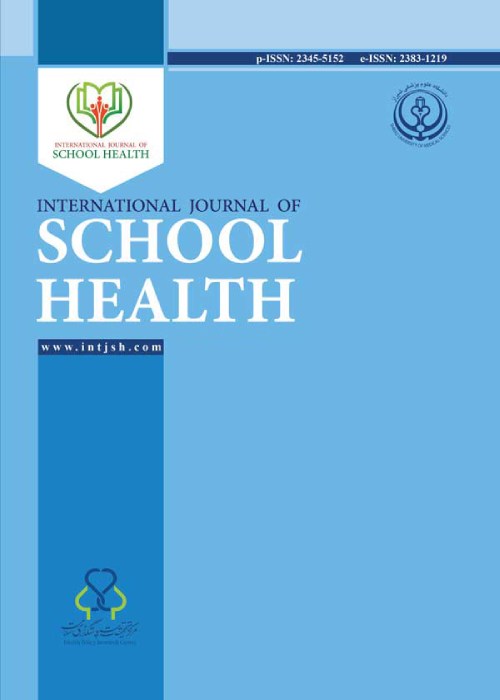The Relationship of Self-Esteem and Attributional Styles with Self-Handicapping in Primary Schools
Author(s):
Article Type:
Research/Original Article (دارای رتبه معتبر)
Abstract:
Background
Self-esteem, attributional styles, and self-handicapping play key roles in students individual and social performances. Through determining interactional relations among these factors, parents and schools can plan for improving students performances.Objectives
Hence, this study aimed to investigate the relationship of self-esteem and attributional styles with self-handicapping among primary school students.Methods
The statistical population of this study comprised of 3rd to 5th grades of primary school students in Zahedan, during the 2015 - 2016 academic year. The research sample consisted of 365 primary students (154 boys and 211 girls) aged 9 to 11 years old who were selected using the random cluster sampling method. The research measurement tools were the Seligman et al. Childrens attributional style questionnaire, the rosenberg self-esteem scale, and the Midgley et al. self-handicapping scale. The statistical analyses were performed via SPSS16 using both descriptive and inferential statistics including the correlation test and the Inter regression analysis.Results
The descriptive results indicated that the means of the pessimistic (9.15), optimistic (9.39) attribution styles, and self-handicapping (7.11) among the students were lower than the nominal mean of the questionnaires, however, the mean of self-esteem (31.20) was higher than the nominal mean score. Furthermore, results showed that self-handicapping was significantly and positively related to the pessimistic attribution style and it was significantly and negatively correlated with self-esteem. In addition, the results of the regression analysis showed that self-handicapping was a negative predictor of self-esteem (P ≤ 0.001) and was a positive predictor of the pessimistic attributional style (P = 0.03).Conclusions
Therefore, given the obtained results, students who had high self-esteem experienced low levels of self-handicapping. Moreover, students who applied the optimistic attributional style had high academic achievement and low self-handicapping. In this regard, methods aimed at improving self-esteem and the optimistic attributional style can be used to promote students educational statuses.Keywords:
Attributional Styles , Self , Esteem , Self , Handicapping , Student
Language:
English
Published:
International Journal of School Health, Volume:5 Issue: 1, Winter 2018
Page:
2
magiran.com/p1782202
دانلود و مطالعه متن این مقاله با یکی از روشهای زیر امکان پذیر است:
اشتراک شخصی
با عضویت و پرداخت آنلاین حق اشتراک یکساله به مبلغ 1,390,000ريال میتوانید 70 عنوان مطلب دانلود کنید!
اشتراک سازمانی
به کتابخانه دانشگاه یا محل کار خود پیشنهاد کنید تا اشتراک سازمانی این پایگاه را برای دسترسی نامحدود همه کاربران به متن مطالب تهیه نمایند!
توجه!
- حق عضویت دریافتی صرف حمایت از نشریات عضو و نگهداری، تکمیل و توسعه مگیران میشود.
- پرداخت حق اشتراک و دانلود مقالات اجازه بازنشر آن در سایر رسانههای چاپی و دیجیتال را به کاربر نمیدهد.
In order to view content subscription is required
Personal subscription
Subscribe magiran.com for 70 € euros via PayPal and download 70 articles during a year.
Organization subscription
Please contact us to subscribe your university or library for unlimited access!


